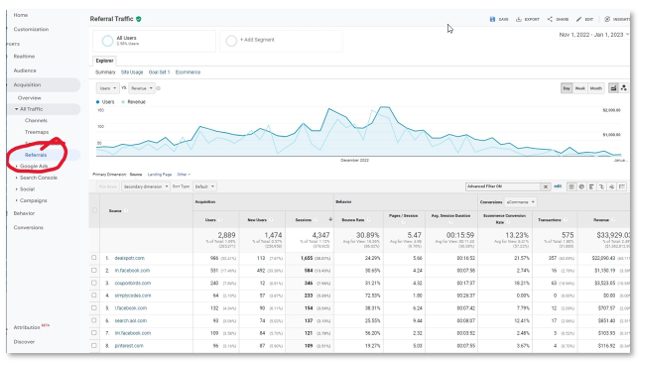 How do you determine what topics to write about and what types of content to produce for your website? To effectively drive website performance, we recommend leveraging data to assess your most successful content and determine what future content will resonate best with your target audience.
How do you determine what topics to write about and what types of content to produce for your website? To effectively drive website performance, we recommend leveraging data to assess your most successful content and determine what future content will resonate best with your target audience.
Experiment With Different Strategies
There’s no reason to approach content marketing with a one-size-fits-all approach. Be resourceful and examine your data from different angles – then you’re more likely to score some big wins. Here are some strategies to try:
- Examine Google Search Console Query Data – Look at the Google Search Console performance report and find queries with high impressions but low clicks. Develop content around these queries in order to better provide searchers with the content they are seeking.
- Sift Through Site Search Queries – Your website’s site search will tell you what people are searching for on your website. Ensure that “site search tracking” is enabled in Google Analytics to make it easier to review these terms. Often you’ll see multiple queries that are simply variations on the same theme. If people are searching your site for a particular topic and don’t find it, it may be time to create relevant content around this theme.
“If people are searching your site for a particular topic and don’t find it, it may be time to create relevant content around this theme.”
- Employ Secondary Dimensions in Google Analytics – When reviewing a list of top blog articles sorted by pageviews, add a secondary dimension (e.g. city or country, gender, user type etc.) to provide demographic insights about users for a particular content piece. Armed with this data, you might choose to create additional content for this audience – or tweak the content slightly to appeal to a different demographic.
- Promote “Second Tier” Terms – Use SEMrush, Moz’s Keyword Explorer or a similar tool to see what relevant, high-volume terms your site currently ranks for at the bottom of page 1 or top of page 2. Then, create unique content around these terms in an effort to push them to the top or middle of page 1.
“See what relevant, high-volume terms your site currently ranks for at the bottom of page 1 or top of page 2. Then, create unique content around these terms in an effort to push them to the top or middle of page 1.”
- Improve Or Reuse What You’ve Got – Take a hard look at your existing content. Rather than creating completely new content from scratch, look for creative ways to repurpose existing content that has good engagement metrics and to improve content with mediocre performance.
Monitor, Measure And Benchmark
Benchmarking your content marketing results against your own historical data is useful, but take a wider view and measure against other firms within your industry as well. MarketingSherpa provides data on average conversion rates from organic search by industry. Also, the annual Content Marketing Institute’s B2B Content Marketing Benchmarks Report is a helpful resource for Google Ads conversions (for both Search and Display).
“Benchmarking your content marketing results against your own historical data is useful, but take a wider view and measure against other firms within your industry as well.”
To make outcome monitoring and measuring less time consuming, consider setting up a Google Analytics content dashboard. This will provide you with valuable intel at a glance, such as most popular content, how people find it and whether or not it contributes to leads. Customize your content dashboard with the metrics that are most important to your business.
Promote And Share
Don’t rely solely on people finding your content through organic search. Push it out to your target audience through social media, and be sure to share it with subscribers in your regularly scheduled e-newsletter.
Make sure you have a high level of confidence in your data before leveraging it for marketing strategy decisions. If you have any doubts, call us at (443) 475-0787 or Contact Us online to schedule a complete Google Analytics audit.







